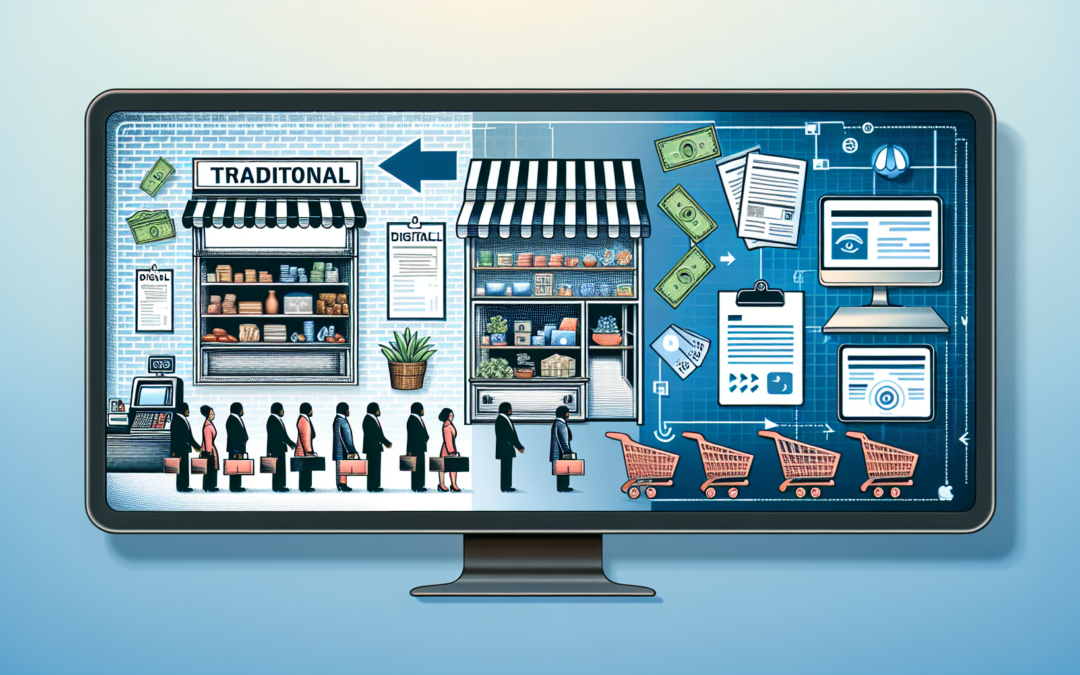E-commerce Solutions are the gateway to a world of endless possibilities for businesses striving to thrive in the digital landscape. As technology continues to evolve, embracing the power of e-commerce has become not just a choice but a necessity for those aiming to stay ahead of the curve.
Explore the Potential of E-commerce Solutions
As businesses navigate the dynamic digital terrain, E-commerce Solutions stand out as critical tools that offer robust capabilities to enhance online presence, drive sales, and deliver exceptional customer experiences. Embracing these solutions enables businesses, both big and small, to transcend traditional boundaries and reach customers globally.
The Benefits of E-commerce Solutions
1. Expanding Reach
One of the most significant advantages offered by E-commerce Solutions is the ability to extend your market reach beyond geographical constraints. Traditional businesses are restricted by their physical locations, but with e-commerce, there’s a golden opportunity to connect with a global customer base. It’s about creating a digital storefront that is accessible 24/7, providing customers the convenience to shop at any time.
2. Cost Efficiency
Running a physical store comes with various overhead expenses such as rent, utilities, and staffing. Transitioning to an e-commerce platform can significantly reduce these costs. Digital platforms require a lower upfront investment, and with advancements in technology, maintaining an e-commerce website is more streamlined and cost-effective than ever.
3. Personalized Shopping Experiences
The current market trends emphasize personalized customer experiences. E-commerce Solutions are powered by sophisticated algorithms that collect and analyze data to understand customer preferences and behavior. This data-driven approach enables businesses to tailor product recommendations, provide targeted promotions, and improve overall customer satisfaction.
Critical Components of Effective E-commerce Solutions
1. User-Friendly Website Design
The first impression your online store makes is crucial. A seamless, aesthetically pleasing website invites customers in and encourages them to stay. User experience (UX) design focuses on ensuring that your site is easy to navigate, visually engaging, and mobile-friendly. Prioritize simplicity, speed, and accessibility to retain customer interest.
2. Robust Payment Gateways
A critical aspect of E-commerce Solutions is the integration of secure and efficient payment gateways. Various payment options, including credit card processing, digital wallets (like PayPal and Stripe), and even cryptocurrency, can cater to diverse customer preferences. Security is paramount; ensure that all transactions are encrypted to build trust and protect customer data.
3. Effective Inventory Management
To stay competitive, maintaining up-to-date inventory is essential. E-commerce platforms often include built-in inventory management systems that track stock levels, manage supply chains, and automate restocking processes. This helps prevent issues like overselling and stockouts, ensuring that your business operates smoothly.
Leveraging Marketing Tools Within E-commerce Platforms
1. Search Engine Optimization (SEO)
SEO is the bedrock of any successful e-commerce strategy. By optimizing your website with relevant keywords, meta tags, and high-quality content, you can improve your search engine rankings. This enhances visibility, driving organic traffic to your site. Make sure to regularly update your blog with insightful articles—like this post on How to Drive Traffic to Your Online Store—to maintain engagement and boost SEO.
2. Social Media Integration
Social media platforms are powerful tools for driving traffic to your e-commerce site. Integration features allow you to manage social media campaigns directly from your e-commerce platform, reducing complexity and time investment. For continuous engagement, follow and connect with us on Facebook, Twitter, and Instagram.
3. Email Marketing
Email marketing remains one of the most cost-effective marketing channels. E-commerce platforms typically include email marketing tools that enable you to design campaigns, segment your audience, and track engagement. Send personalized offers, newsletters, and product updates to maintain a strong relationship with your customers.
The Future of E-commerce Solutions
As technology continues to advance, so do E-commerce Solutions. Artificial Intelligence (AI) and Machine Learning (ML) are at the forefront, offering smarter solutions that predict market trends and enhance customer engagement. Virtual and Augmented Reality (VR and AR) are also making their way into the e-commerce space, allowing for immersive shopping experiences.
Moreover, sustainable e-commerce practices are becoming increasingly critical. Consumers are growing more conscious about the environmental impact of their purchases. Integrating eco-friendly practices within your e-commerce strategy, such as using sustainable packaging or providing carbon offset options, can resonate well with today’s ethically aware consumers.
Conclusion
The transformation brought about by E-commerce Solutions is profound and necessary for businesses aiming to remain competitive in the digital age. By harnessing the power of these solutions, your business can deliver personalized, efficient, and expansive services to customers globally. Dive deeper into the world of e-commerce and explore how these innovative solutions can catapult your business into unprecedented growth. For more insights, don’t miss our recent post Maximizing ROI with Digital Marketing.
Connect With Us
Join the conversation and stay updated with our latest tips and insights. Connect with RP Summit on Facebook, Twitter, and Instagram.
Using E-commerce Solutions effectively can write a compelling success story for your business. It’s time to embrace this digital revolution and soar to new heights.

